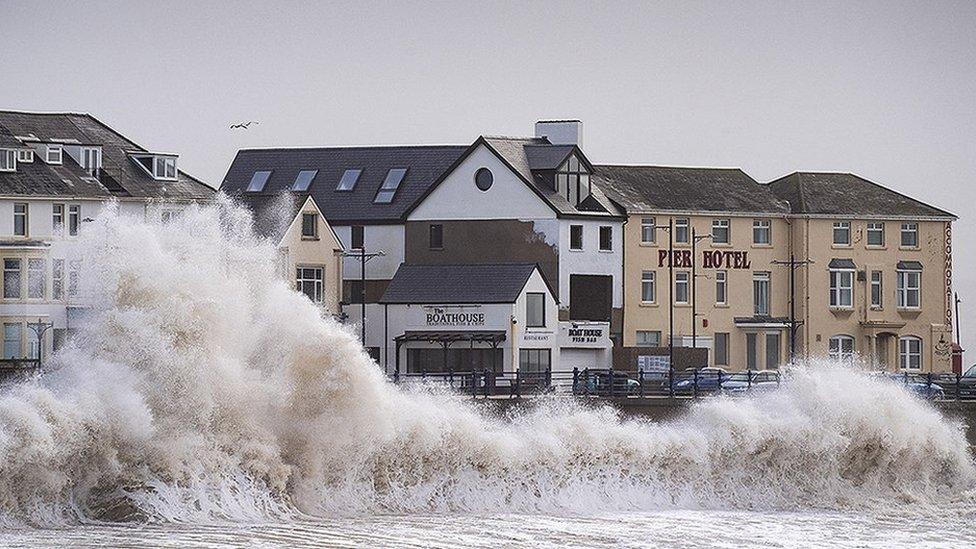Storm Eunice heads for UK and prompts danger to life warning
- Published
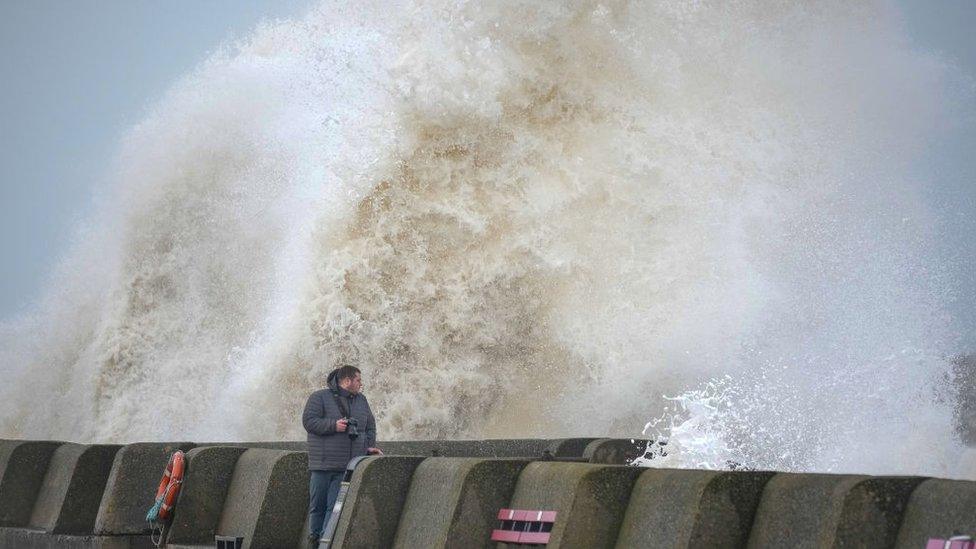
Parts of the UK are bracing for the impact of one of the most serious storms in years after the Met Office issued a rare red warning for Friday.
Storm Eunice could bring gusts of up to 90mph in south-west England and south Wales, with a risk to life from flying debris.
Damage to homes, cancelled trains and power cuts are likely. Many schools are closing as a precaution.
The warning, external is in place from 07:00 GMT until 12:00 GMT.
It means millions of people living near the coastline of Devon, Cornwall and Somerset, as well as the south coast of Wales, are being urged to stay at home during the storm.
A lower amber warning for wind remains in place for the rest of Wales and most of England as far north as Manchester, from 05:00 until 21:00 on Friday.
All train services in Wales have been suspended on Friday, while rail companies are urging other customers not to travel due to expected disruption.
Almost all Welsh councils as well as Somerset County Council said their schools would close on Friday. More than a hundred schools across Devon and Cornwall will also shut and Bristol City Council said it had advised schools not to open.
The government held an emergency Cobra meeting to discuss the response to the incoming storm.
Prime Minister Boris Johnson said the Army was "on standby" to support those affected.
It comes after Storm Dudley caused widespread travel disruption and power cuts on Wednesday.
There are concerns that Storm Eunice's strong winds and a possible storm surge could combine with high spring tides to bring coastal flooding to the west, south-west and the south coast of England.
Ten severe flood warnings, external - meaning there is a danger to life - are in place on the Severn Estuary and the Wye Estuary.
A government source told the BBC they were "well-prepared" with more than 250 high-volume pumps and 6,000 trained staff able to be deployed, adding they were not taking the threat posed by Eunice "lightly".
The Met Office said extremely strong winds would develop over south-west England and south Wales early on Friday, with widespread inland gusts of 70-80mph and up to 90mph near some coasts.
In the red warning zone, roofs could be blown off and power lines brought down while trees are likely to be uprooted, it said.
The winds are expected to ease from the west during the late morning, but it will remain unsettled over the weekend with more rain and strong winds.
Yellow warnings are in place on Saturday until 18:00 GMT, covering the whole of England's south coast, as well as coastal areas in the south-west of England and south Wales. Further strong winds could hinder recovery after the storm, the Met Office said.


Aidan McGivern, from the Met Office, said red warnings were not issued lightly and only when there was a significant danger to life and high confidence of a major impact.
"It is the most powerful storm we have seen in recent years and we should tie down anything loose, especially trampolines, and make plans to stay in, especially if you live in a red zone," he told the BBC.
The last red warning was for Storm Arwen in November last year, which saw strong winds batter the east coast of Scotland and north-east England.
Before that, one had not been issued since 2018, when the so-called "Beast from the East" brought widespread heavy snow and freezing temperatures to many parts of the UK in late February and March.
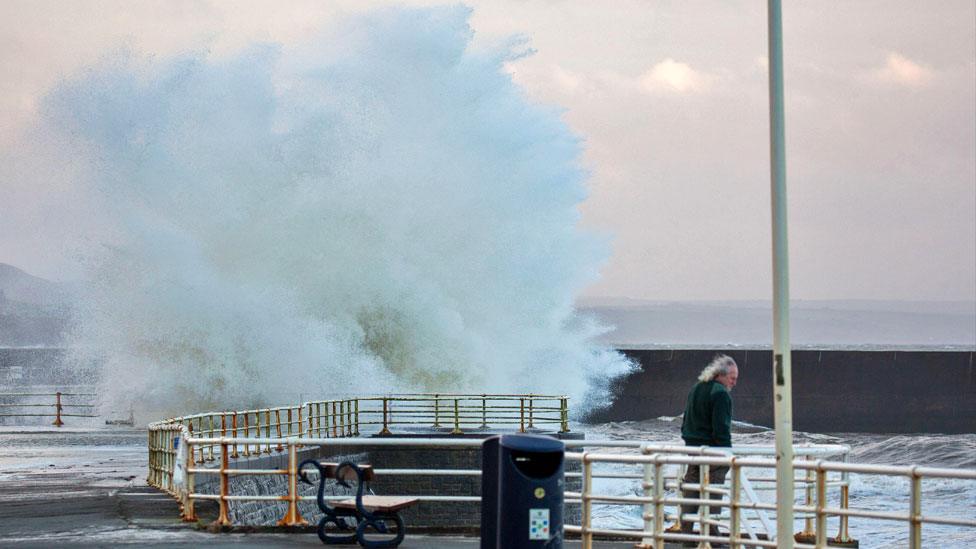
BBC Weather presenter Simon King said the wind strengths forecast for southern parts of the UK were comparable to the Burns' Day Storm of January 1990, external, which caused widespread damage, and the storms that hit the UK during the winter of 2013-2014.
Train companies are urging customers not to travel on Friday, with blanket speed restrictions set to be imposed on the main rail lines across the country.
Jake Kelly, from Network Rail, said: "We will be doing everything we can to keep as many services as possible running safely and reliably on Friday, but with such strong winds expected we know that disruption to passengers' journeys is inevitable."
Great Western Railway said it expected to cut half of its services on Friday. The mainline in south Wales will be closed, with services terminating at Bristol Parkway, while some branch lines in Devon and Cornwall will also close.
Network Rail said disruption was likely to continue into the weekend, while tracks were cleared of debris and fallen trees.
Highways England urged drivers, particularly those driving high-sided lorries, caravans and motorcycles, to check the weather before setting off, especially in coastal and high-lying areas.
Watch: BBC Weather's Nick Miller explains what a rare red weather warning means
Major incidents have been declared in Cornwall, Gloucestershire and Avon and Somerset.
Council and emergency services staff in Gloucestershire and Avon and Somerset were due to knock on doors on Thursday afternoon to ensure people who need to evacuate from possible floods along the Severn Estuary can do so safely.
In Cornwall and Somerset, residents are being urged to stay at home and only travel on Friday if "absolutely necessary".
Both councils advised people to stay back from cliffs and seafronts due to the danger of large waves, with Cornwall warning of possible flooding during the high spring tides at about 06:00 GMT.
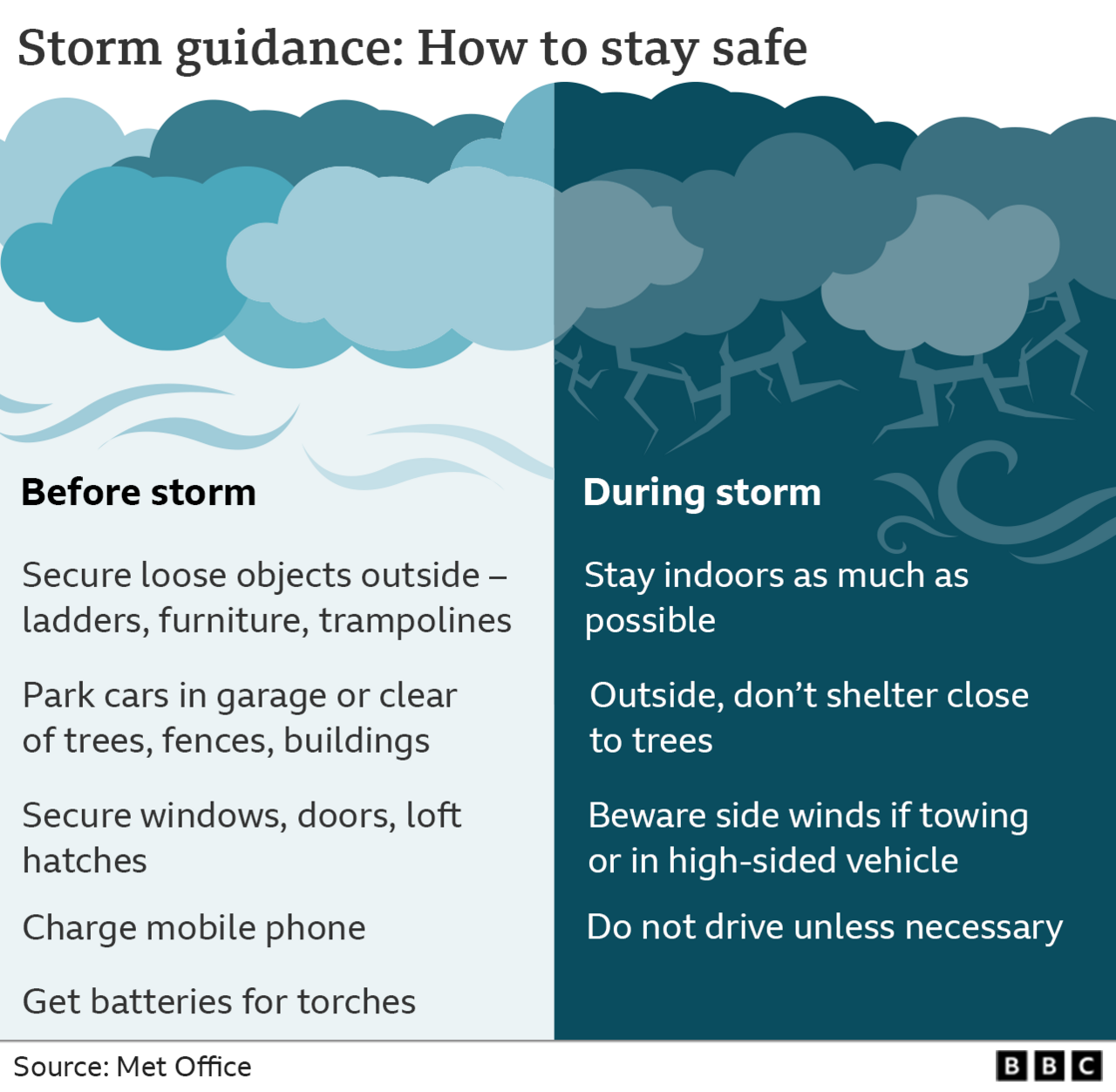
As well as the ten severe flood warnings, less serious flood warnings and alerts have been issued for other parts of England, external, Scotland, external and Wales, external.
In other developments:
London, Cornwall, Breckland Council near Norfolk and Stoke-On-Trent City Council are opening emergency shelters for people sleeping rough
Several councils said bin collections would be suspended on Friday
Legoland in Windsor, the London Eye, the Royal Botanic Gardens at Kew and Wakehurst, and RHS gardens, are among a number of tourist attractions to close
The Prince of Wales cancelled a planned visit to Newport and Swansea as a result of the forecast
A red weather warning has also been issued for Counties Kerry and Cork in the south west of the Republic of Ireland, from 03:00 until 08:00 on Friday. Schools in seven counties in the Irish Republic are closing
Some people were just recovering from Storm Dudley on Wednesday as they braced for Storm Eunice. On the Gower Peninsula in south-west Wales, David Walis and his wife Robbie Bartington said a huge oak tree had been toppled near one of the shelters in their animal sanctuary.
Mr Walis said they were "extremely worried" for their ponies and sheep in the upcoming storm.
Storm Dudley also left thousands of people in north-east England, Cumbria, North Yorkshire and Lancashire without power. Northern Powergrid said it had restored power to all of its more than 20,000 customers affected by the storm by Thursday evening.
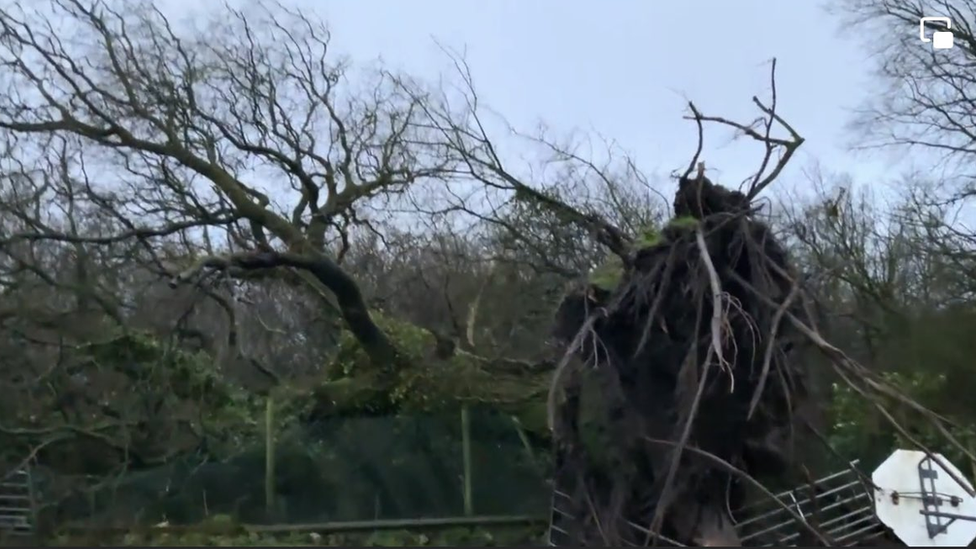
Robbie Bartington and her husband David Walis said a huge oak tree fell close to one of their animal shelters
In Scotland, all trains were cancelled on Wednesday evening but most lines were back up and running by Thursday morning.
A yellow warning for wind and snow is also in place for much of Northern Ireland, northern England and Scotland as far north as Glasgow from 03:00 until 18:00 on Friday.
The Met Office said some places could see 5cm (2in) of snow at low levels away from coasts, while there could be accumulations of up to 30cm for areas above 250m.

How have you been preparing for Storm Eunice? Email haveyoursay@bbc.co.uk, external.
Please include a contact number if you are willing to speak to a BBC journalist. You can also get in touch in the following ways:
WhatsApp: +44 7756 165803
Tweet: @BBC_HaveYourSay, external
Please read our terms & conditions and privacy policy
If you are reading this page and can't see the form you will need to visit the mobile version of the BBC website to submit your question or comment or you can email us at HaveYourSay@bbc.co.uk, external. Please include your name, age and location with any submission.

Related topics
- Published17 February 2022
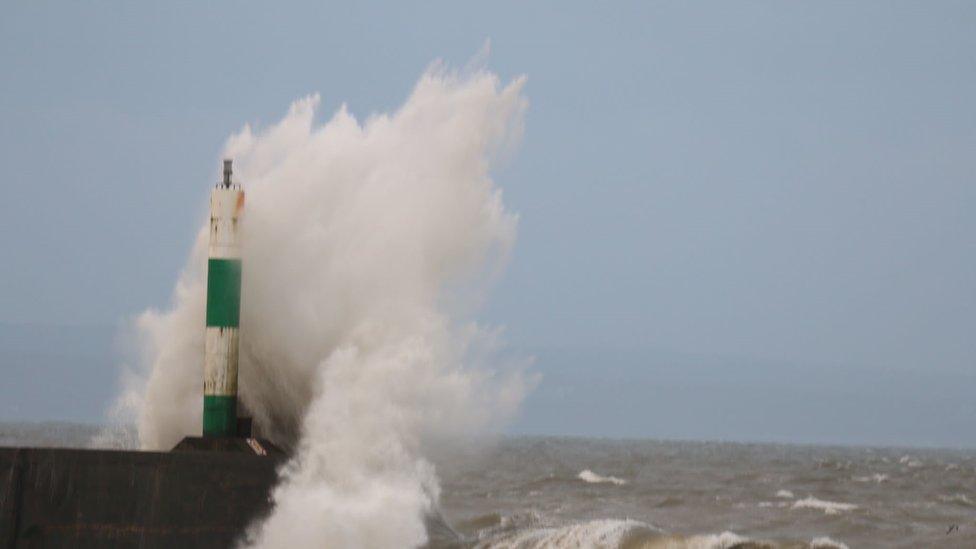
- Published17 February 2022
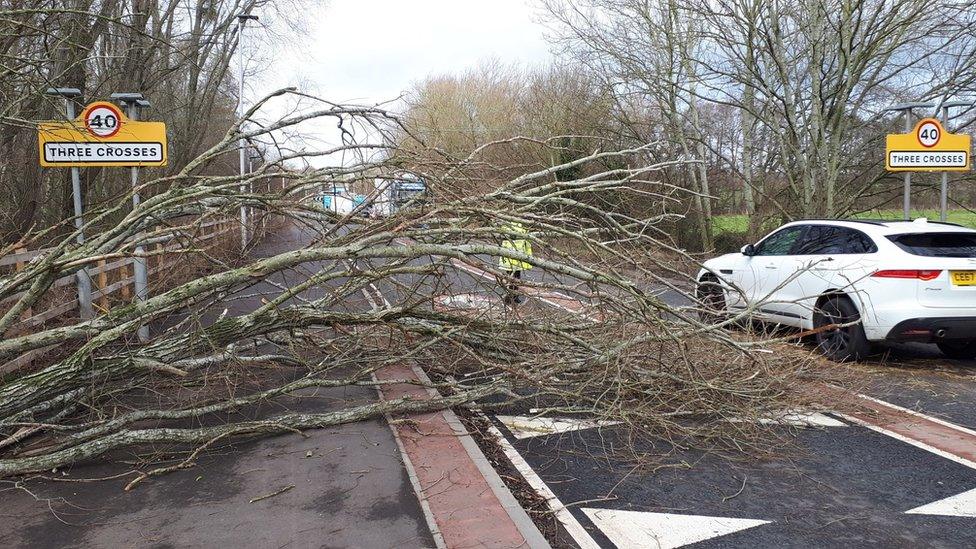
- Attribution
- Published16 February 2022
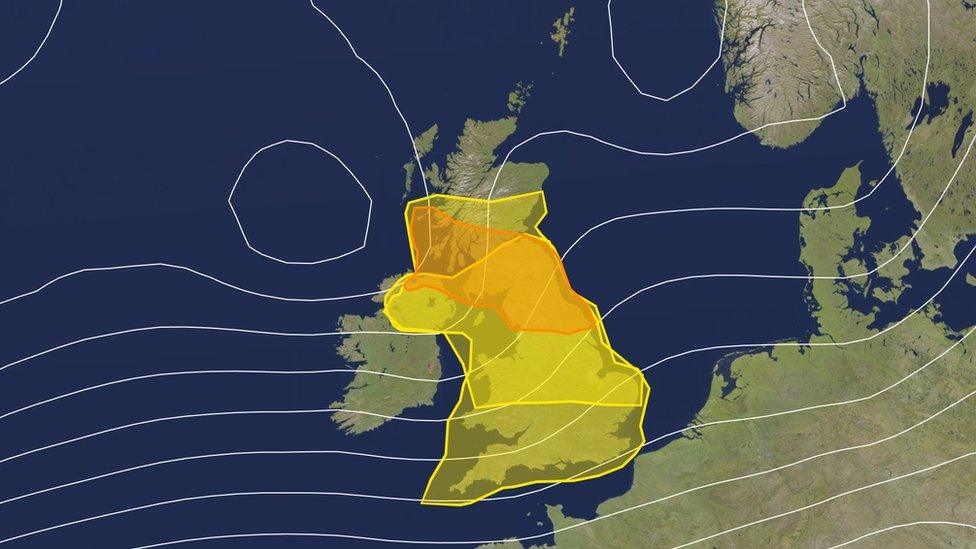
- Published18 February 2022
